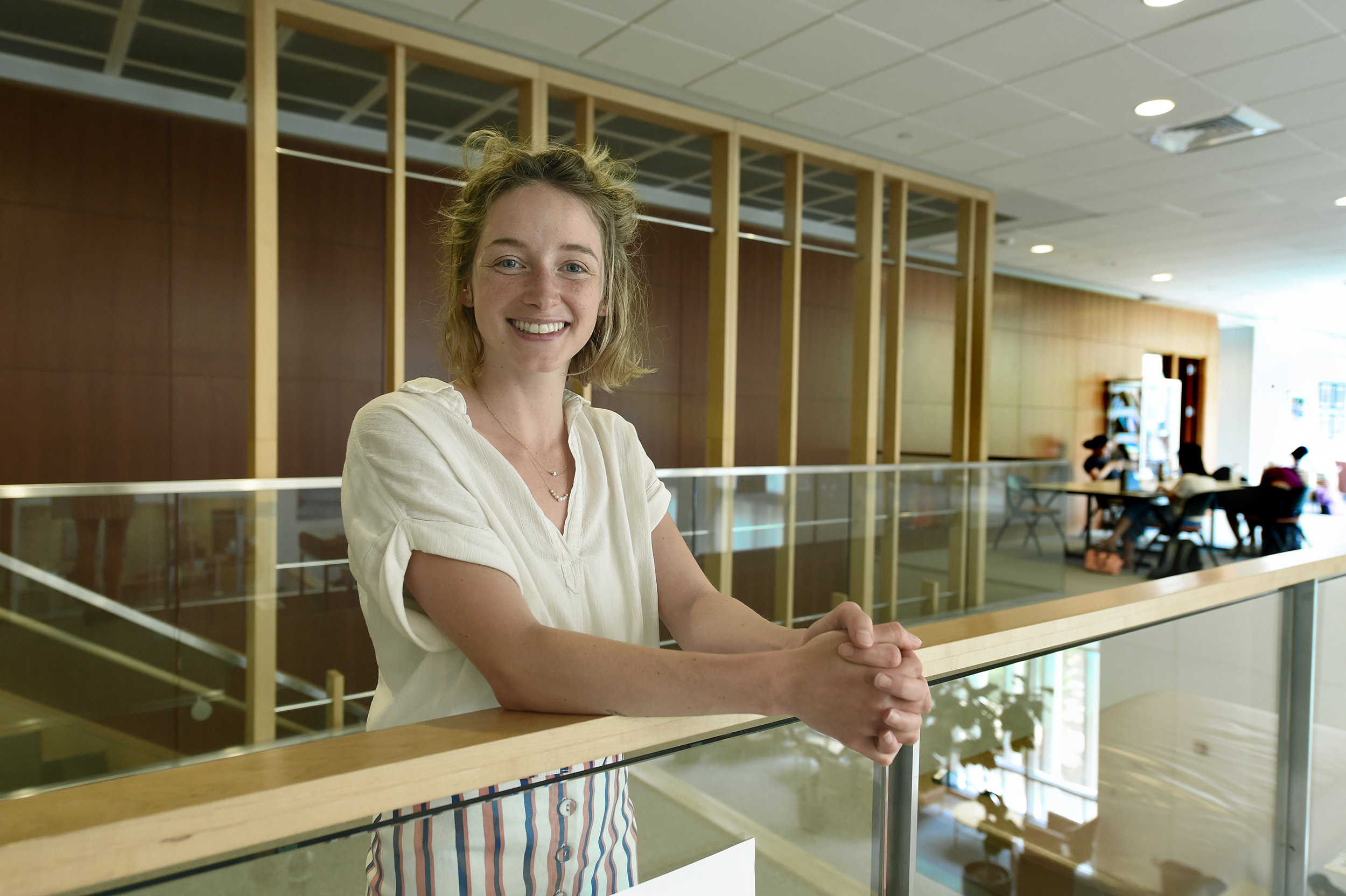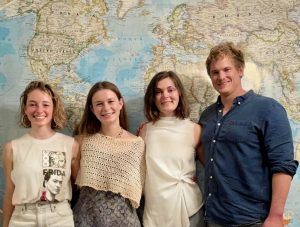Catherine Haas (M.A. global studies ’22) and fellow graduate students won an Arts Innovation Grant to launch a new digital student journal, The Global Gazette.

Catherine Haas loves the interdisciplinary nature of UNC’s master’s program in global studies. Now she and fellow graduate students are leaving their mark on campus by creating a publication that celebrates that same diverse mindset.
The forthcoming Global Gazette will be more than an academic student journal.
“We wanted something that would be academic and creative, that would allow people to express their experiences in whatever form that took shape,” said Haas, who is from Winston-Salem and majored in international studies and Spanish at UNC-Asheville before coming to Chapel Hill. “I thought about how compelling Richard Powers’ Pulitzer Prize-winning book The Overstory is, for instance, or films that evoke emotion.”
Haas and Greg Kyle are second-year M.A. students who helped to create the publication, along with first-years Eleni Econopouly and Scarlett Hawkins. The team won a 2022 Arts Everywhere Arts Innovation Grant to support their efforts.
“Undergraduate and graduate students have valuable insights and perspectives, and we wanted to offer them a platform to share their engaging ideas with the world,” Kyle added. “We want to connect with the community through shared experiences.”

Haas said the first edition includes academic papers, a reflective essay, some poems, a painting, a photo collection and op-eds from The Global Gazette team.
In future years, the editorial team hopes to pair the publication of the journal with a public symposium where contributors can share their works with an audience and create an open forum for discussion.
Haas defended her thesis on April 21; her area of research focus is political ecology. She appreciates that she was able to take courses through the graduate program across departments, in anthropology and geography and political science — even the law school. Each global studies graduate cohort is about 10 students per year.
Haas’ thesis focuses on the “Rights to Nature” movement, which has been gaining momentum as people advocate for ecosystems, rivers, mountains, national parks and other natural resources to have legal rights and protections similar to people.
“I’m looking at why it’s gaining momentum in certain parts of the world and how indigenous leadership has propelled the movement forward,” Haas said. “It began 50 years ago, but today it’s happening all over the world as countries and communities are taking action in courts and at international conferences and more.” (For instance, Ecuador recognized “Rights of Nature” in its constitution in 2008. There’s a global network committed to the movement, Global Alliance for the Rights of Nature, www.garn.org.)
Haas said faculty members Jonathan Weiler (who taught a course on politics and institutions and society) and Elizabeth Olson (who taught a course on global theory) were among her favorite professors.
“Dr. Weiler has been essential to my entire M.A. experience, my academic and emotional journey,” she said. “And Dr. Olson is an incredible academic and mentor. She had us engage in discussions that really dug deep and were morally and ethically difficult. These complex topics don’t have clear answers, and they really challenged my perception and helped me to develop my research proposal and thesis topic.”
When asked about her favorite spot on campus, Haas laughed and said it was probably the teaching assistants’ office in the FedEx Global Education Center because she spent so much time there.
Post-graduation, Haas’ research on “Rights to Nature” will be ongoing as she works with a political scientist at the University of Oregon who was one of the first academics in the United States to begin researching the movement in the early 2000s. She’ll also continue her work with Women’s Earth Alliance, an environmental justice nonprofit based in California. Her long-term plans may include law school.
As she reflects on her UNC journey, Haas said that her time at Carolina felt like both “the longest and the shortest time.” She urged incoming graduate students to “lean in to the experience.”
“Lean in to campus, your cohort, your professors. Really experience the experience. Don’t miss any opportunities.”
By Kim Spurr, College of Arts & Sciences
